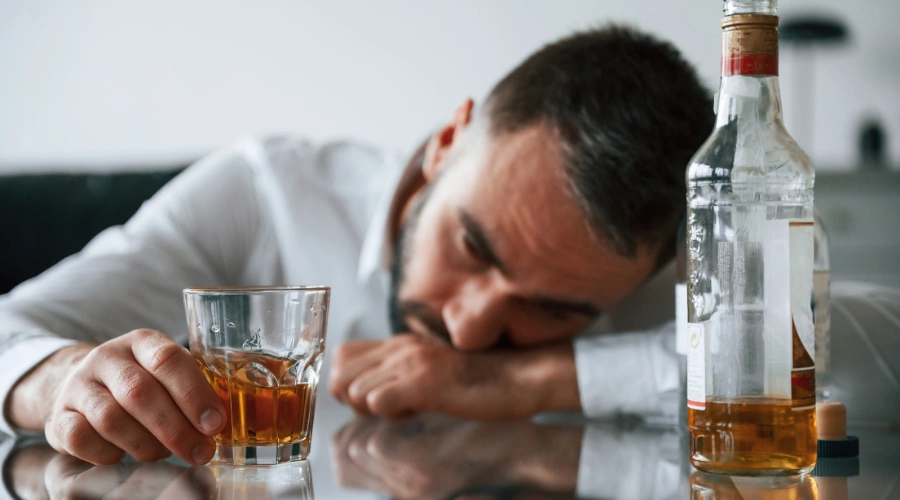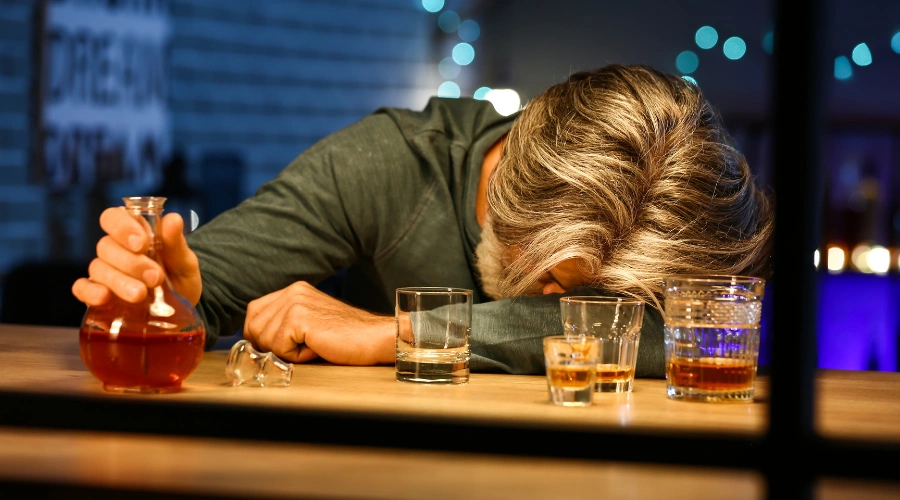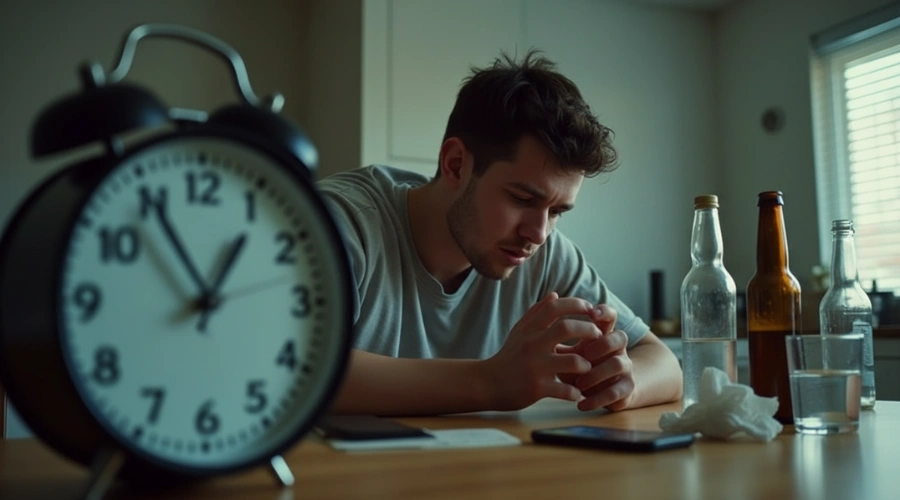The Timeline For The Body to Metabolize Alcohol Effectively
You’ve had a little too much to drink on a night of revelry. Maybe you have a pattern of drinking too heavily. Either way, you need to know when you can expect to see alcohol clear your system.
This generally boils down to a core concern: How long does take it to sober up?
To get you a short answer: alcohol consumed will clear your system entirely in about one day. Your blood alcohol concentration (BAC) takes less time to decline, usually one hour for every standard drink you have had.
But factors like gender and weight can impact how long it takes to get sober. Cold showers, coffee, and exercise are myths that don’t affect BAC. We’ll break down all the factors at play over the course of our complete resource, so please keep reading.
And remember, Ingrained Recovery offers comprehensive alcohol treatment plans that are tailored to the individual client. When you reserve a spot in our private, upscale treatment center, we help you get sober more comfortably. If you’re ready to embrace sobriety, here’s what you need to know about getting sober.
Get Effective Detox and Rehab Options
Find Help At Ingrained Recovery
How Long Does It Take to Sober Up?
Alcohol abuse and even just run-of-the-mill alcohol consumption can affect each person differently.
The amount of time it takes for alcohol withdrawal or for alcohol to clear your bloodstream is highly dependent on your chemistry, how much alcohol you had, and how long you have been drinking.
Here is what you need to know about how long it takes to sober up, whether you just started drinking alcohol or have been imbibing more frequently.
How Long Alcohol Stays in the Body: One Drink or Many?

A single drink is going to clear your system much faster than someone who has had enough to boost their blood alcohol concentration (BAC) to above the legal limit. Generally speaking, one drink has a half-life of four to five hours.
Most medical experts state that it takes five half-lives to rid the body of any substance.
That means that you should start to see the effects of alcohol lessen in about four hours, and it will clear your system entirely within a day.
That’s not to say that you won’t show up positively on tests designed to detect alcohol consumption. Many of these tests, including urine tests, show alcohol intoxication up to 72 hours after one last drink.
Blood Alcohol Concentration and Time to Drive
Most people are more concerned with their ability to drive after their last drink, which is usually defined as being under the legal limit. Blood alcohol concentration is the way that law enforcement tests for any alcohol abuse. If you’re over 0.08 percent, you are legally prohibited from being behind the wheel.
If you have an ignition interlock device or must pass a breathalyzer before driving, you can expect to see your BAC drop by about 0.015 percent per hour.
That means it may take you several hours to sober up enough to drive. Keep in mind that those who are not of legal age have more stringent guidelines. Instead of 0.08 percent, anyone under age 21 needs to have a 0.02 percent BAC or less.
The best thing to do if you aren’t sure what your blood alcohol content (BAC) is would be to refrain from driving until you’re absolutely positive you are sober. The answer isn’t universal. Everyone will process their alcohol consumption differently, so trust your body.
What are the Main Factors Affecting Alcohol Absorption in the Body?
Of course, the way your body metabolizes alcohol depends on a number of factors that are beyond your control. Some people are more strongly impacted by drinking, especially when it comes to binge drinking.
Some of the factors that impact your alcohol absorption rates include:
- Gender: Men can often drink more than women because their bodies may metabolize alcohol at a faster rate than women. This could be tied into other factors such as body composition or weight.
- Weight: You may experience more unpleasant symptoms of your drinking if you weigh less. Lower body weight doesn’t necessarily mean that alcohol consumption clears your system faster, but it does ensure that you’ll feel drunk faster.
- Fat Content: In addition to weight, you absorb alcohol differently if you have fat versus muscle. Fat doesn’t absorb alcohol as much as muscle, making you feel more intoxicated for the same amount of alcohol, even if all other things are equal.
- Meal Times: If you haven’t had a meal, you’re likely to have a higher blood alcohol content.
- Medications and Polysubstance Abuse: Medications you might take for other conditions or even polysubstance abuse with other drugs can impact your absorption.
When you get serious about your attempt to stop drinking, you might find that these factors influence how much you can drink compared to others. The amount of alcohol you drink can also impact your sobriety, especially if you fall into alcohol addiction.
Binge Drinking: How Excessive Alcohol Consumption Impacts Withdrawal

One of the other things you will have to consider when trying to sober up is your propensity to drink more than others. Binge drinking can allow alcohol to build up in your system, taking longer for it to clear your body. This means that you might have longer before withdrawal symptoms hit.
Binge drinking is defined as five standard drinks in two hours for men and four standard drinks in two hours for women.
Research shows that it takes about one hour for one standard drink to metabolize, accounting for some of the factors listed above. Some people may metabolize less, but this is for an average liver. When the situation is more akin to binge drinking, you’ll have to wait longer to get sober.
Get Accredited Treatment at Ingrained
Find Help At Ingrained Recovery
What Can You Do to Sober Up Faster?
How long does it take to sober up if you follow some of the myths that are out there? Most people have heard of drinking coffee or taking a cold shower to minimize hangover symptoms and reduce the time it takes to sober up. But most people don’t know if these approaches really work.
Drinking coffee is a myth that could prove dangerous. When you’re drinking alcohol and coffee at the same time, you feel energized. This can counteract some of the feeling of intoxication, leading you to believe you’re more sober than you are. You may be tempted to drive, but still have a BAC too high.
The same is true of a cold shower. You’ll feel alert from the stimulation, but the average person can still only process alcohol so quickly.
Exercise is another one of those myths that people follow when they want to stop drinking. However, you lose your coordination and reflexes while drunk. This could lead to potential injury or a dangerous scenario.
In other words, those myths that claim to minimize alcohol withdrawal symptoms and sober you up are just that: myths. You’ll need to be more careful as alcohol clears your system.
Alcohol Withdrawal Symptoms: A Timeline for Alcohol Addiction

The amount of alcohol consumed plays a strong role in your hangover symptoms. However, it goes even further than that for someone who is struggling with alcohol abuse. You might be wondering when you will see the severe withdrawal symptoms that so many people talk about.
How long does alcohol stay in your system, and what does that timeline look like?
24 to 36 Hours After the Last Instance of Alcohol Use
Depending on how much alcohol you have had to drink, you will likely start to experience withdrawal symptoms around 24 hours after the final drink. At this stage, you will experience only mild symptoms like a pounding headache or a resurgence of the anxiety you were trying to tame.
The symptoms will escalate in intensity up to the first day and a half after intoxication. You might start to experience more physical symptoms like tremors, nausea sensitivity, vomiting, and insomnia.
As uncomfortable as it might be at this point in the journey, it will peak during the next phase.
48 to 72 Hours Later: How Alcohol Affects Your Body
Once you start coping with your newfound recovery, you’ll find that this is the peak of your withdrawal symptoms. Alcohol dependence becomes clear when you experience all of the earlier symptoms with more intensity. This is the point where many people decide on continued alcohol consumption because it is so uncomfortable.
Enrolling in a medical detox is often the best move. Doctors and nurses can monitor you for fatal side effects of substance use disorder, such as seizures or delirium tremens. They may also be able to offer medications to minimize your discomfort.
Ingrained Recovery can help you to stop drinking alcohol, starting with an intensive level of care.
One Week After Heavy Drinking

After the third day without alcohol consumption, you may find that you start to feel better. Most of the worst symptoms will have subsided by the one-week mark. This is the point where many people feel they might be ready for residential treatment instead of detox.
If you still harbor any uncomfortable symptoms at this point, rest assured that they will likely fade very soon. Most people no longer have any withdrawal symptoms apart from cravings once they hit the two-week mark. Cravings will last longer, but you can fight them.
Keep in mind that you may feel tired and worn out after enduring these painful symptoms for a week. It is normal and even expected that you would need to rest after this. Let Ingrained Recovery take care of you in upscale accommodations on our beautiful Georgia campus.
Up To 100% of Rehab Covered By Insurance
Find Help At Ingrained Recovery
Get Help to Sober Up for the Long Haul at Ingrained Recovery
If you’re ready to take your alcohol use disorder seriously and want to seek professional help, let our clinical team come alongside you. Ingrained Recovery offers 24/7 access to counselors and staff for your comfort and growth. We’ll help you brave the early days of withdrawal symptoms and find new paths forward without alcohol intoxication.
We offer same-day admissions so that you can get the help you need right away, before the worst of the symptoms happens and you are tempted to drink again.
Reach out to our enrollment team today to ask your questions, verify your insurance benefits, and reserve your customized treatment plan in our residential program!
References
- Jones A. W. (1987). Elimination half-life of methanol during hangover. Pharmacology & toxicology, 60(3), 217–220.
- Hallare J, Gerriets V. Elimination Half-Life of Drugs. [Updated 2025 May 3]. In: StatPearls [Internet]. Treasure Island (FL): StatPearls Publishing; 2025 Jan-. Available from:
- Bowling Green State University. (n.d.). Alcohol metabolism. Office of Health and Wellness.
- Pikaar, N. A., Wedel, M., & Hermus, R. J. (1988). Influence of several factors on blood alcohol concentrations after drinking alcohol. Alcohol and alcoholism (Oxford, Oxfordshire), 23(4), 289–297.
- University of California, Berkeley. (n.d.). Blood Alcohol Level. University Health Services.
- California Department of Alcoholic Beverage Control. (n.d.). Alcohol facts.
- Jesse, S., Bråthen, G., Ferrara, M., Keindl, M., Ben-Menachem, E., Tanasescu, R., Brodtkorb, E., Hillbom, M., Leone, M. A., & Ludolph, A. C. (2017). Alcohol withdrawal syndrome: mechanisms, manifestations, and management. Acta neurologica Scandinavica, 135(1), 4–16.

